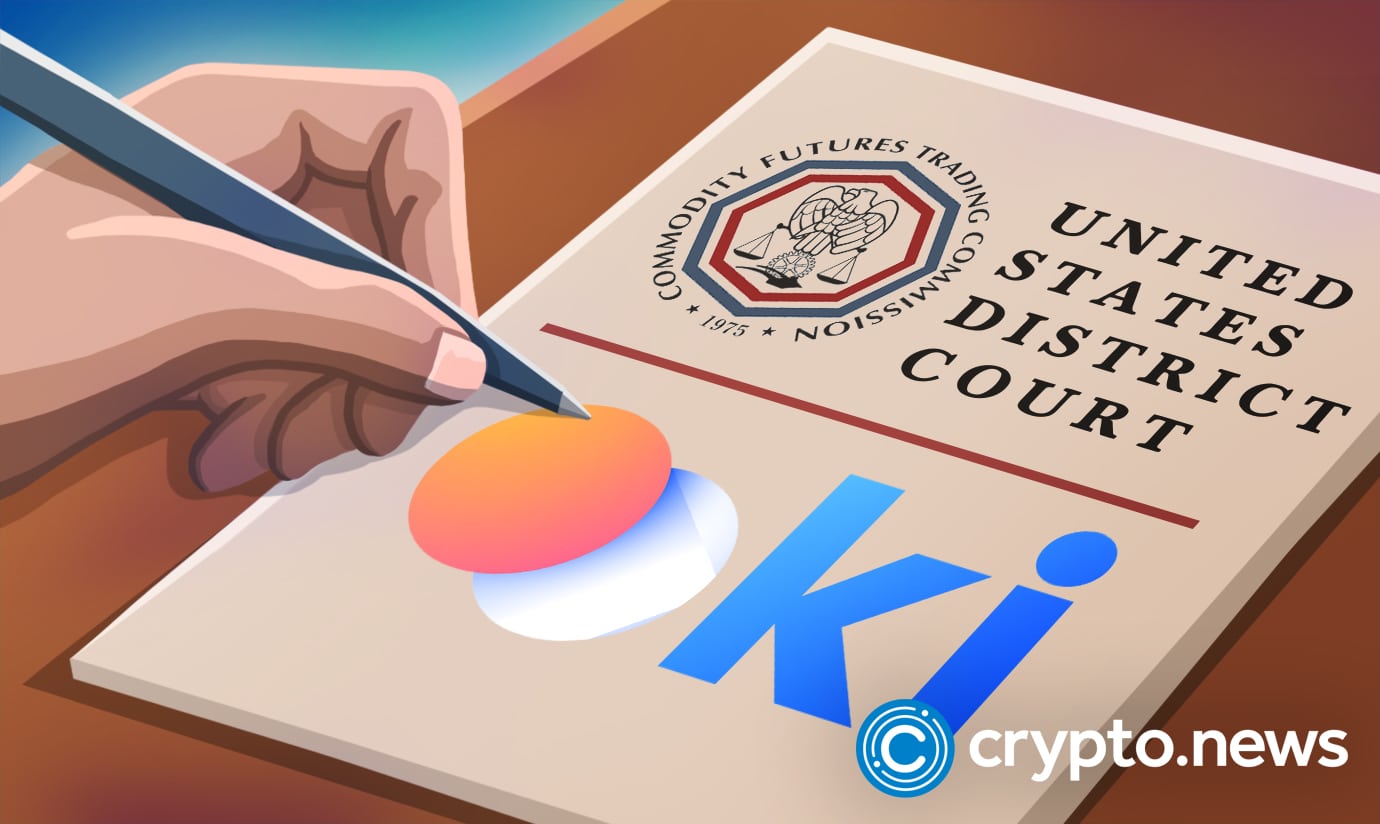CFTC reportedly blew off legal requirement when serving Ooki DAO

The CFTC’s race to serve a lawsuit against Ooki DAO has sparked a backlash from crypto supporters. In their assessment, they claim the CFTC’s method of serving notice was illegal, claiming that members affected should have been notified directly.
CFTC rushed “novel precedent” could be a flop.
In response to CFTC’s earlier pushback, four original briefs were published on Monday, the 21st of November. The briefs argued that the CFTC’s method of serving notice on Ooki DAO’s members (done by posting a notice in a DAO-run forum and via a chatbot on the DAO’s website) was unlawful, and DAO members affected by the lawsuit should have been notified directly.
This is a response to the CFTC’s earlier pushback against the amicus briefs filed by crypto legal consortium LeXpunK, venture-capital firms Andreessen Horowitz and Paradigm and the DeFi Education Fund.
One of three filings pushing back against the agency’s lawsuit said that the Commodity Futures Trading Commission(CFTC) is trying to “create (a)novel precedent” for itself in trying to serve a lawsuit to the entirety of a decentralized autonomous organization, rather than to the DAO’s members.
In September, CFTC sued Ooki DAO, alleging the organization illegally offered crypto derivatives products to U.S. customers. The CFTC had also made similar allegations against bZeroX, a company that acted as a predecessor to Ooki.
CFTC pleads with the Judge to approve their unconventional notice method.
CFTC, realizing their unconventional way of service notice could be a flop to their whole proceedings, has asked the California judge overseeing the case to approve its methods. Saying in their brief that the judge should reconsider.
In its filings last week, CFTC pushed back, claiming that because the DAO was aware of the lawsuit (its members discussed it in the DAO forum and on the DAO’s official Twitter account posted about it), notice had been properly served. However, the new briefs countered this, saying this is not enough.
Andreessen Horowitz said in its brief Monday that the CFTC refused to describe any efforts it had made to identify DAO members, a decentralized autonomous organization. The belief argued further that under California state law, the regulator would have to try to identify individuals to serve.
LeXpunK’s brief alleges that the CFTC hasn’t even proven that Ooki is an “unincorporated association” under the law. LeXpunK stated, “The CFTC relies upon a razor-thin metaphysical distinction between the Ooki DAO and Ooki Protocol. According to the CFTC, the Ooki Protocol is software.”
The brief explained that Ooki DAO instead is a decentralised platform of users connected by a voted governance token that helps in “running the Ooki Protocol pursuant to specific, publicized governance protocols.”
LeXpunK continued by saying:
“The CFTC claims that it ‘is not a novel proposition’ that individuals who use the same software can be deemed members of an unincorporated association by virtue of that software use. Not only is this a novel proposition, (but) it is unprecedented.”
A hearing to discuss the CFTC’s motion for alternative service is slated for the 7th of December, 2022.
















